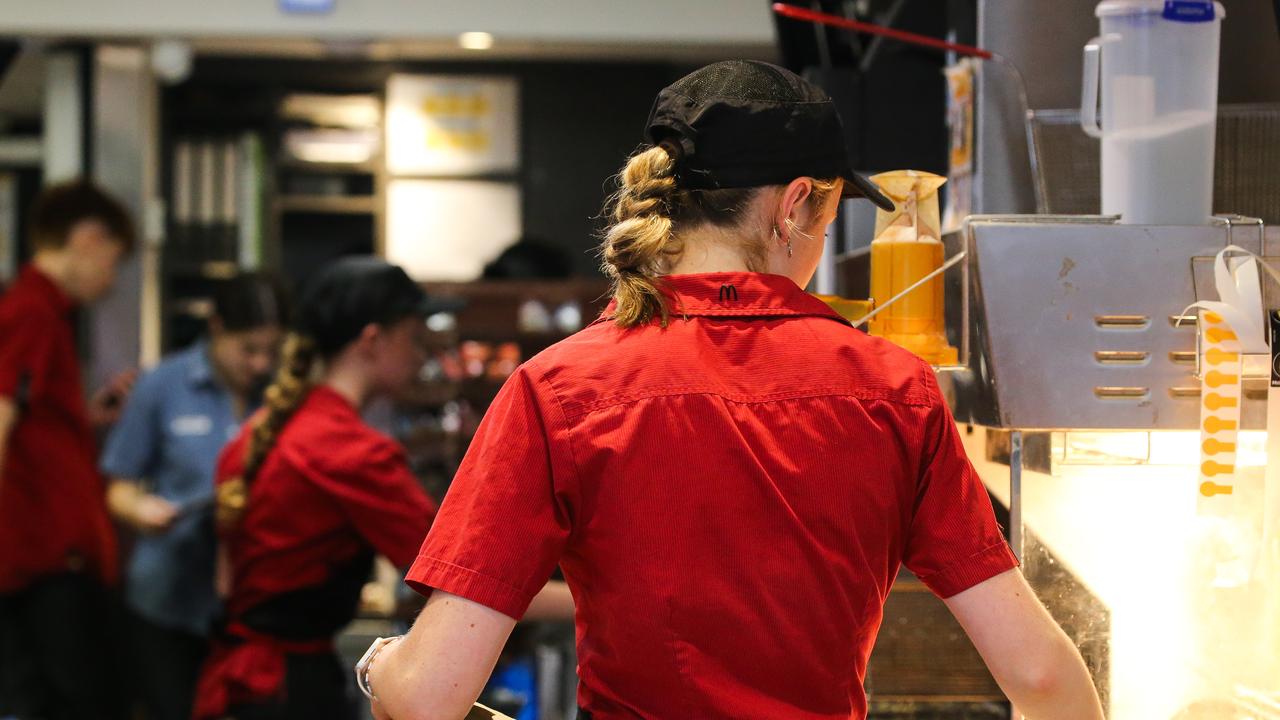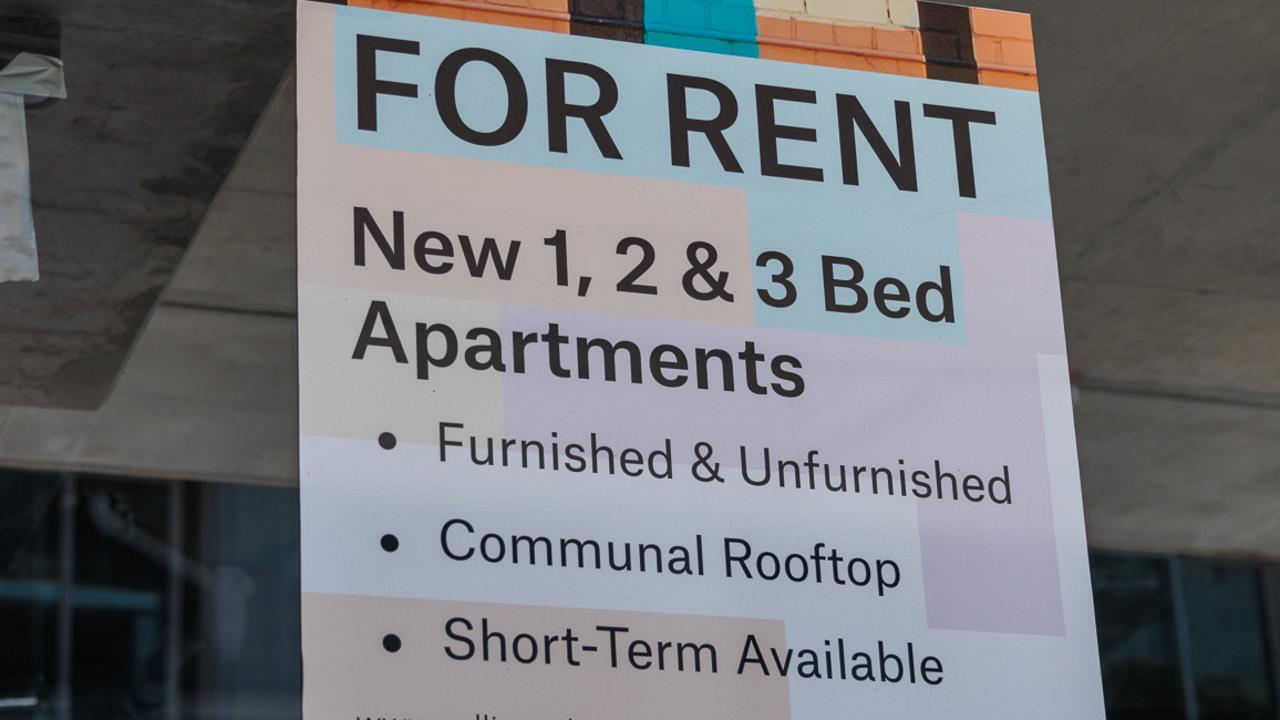Warning rising income gap between generations will harm Australia’s economic future
YOUNGER Australians are being robbed and screwed over by the older generation — and they’re tired of copping the blame.

YOUNG Australians are being warned they risk becoming mere “bystanders” to prosperity as wealth is concentrated in the “arthritic hands” of their parents and grandparents.
Already home ownership among young Australians is at the lowest level it has ever been and wages have actually gone backwards for people in their 30s, while those over 55 are earning ever more.
That’s the dire outlook from author and Labor policy adviser Jennifer Rayner who predicts the current generation is being robbed of their future financial security by Baby Boomers.
And while young people have certainly saddled themselves with debt, she said 20 somethings were getting “pretty f**king tired” of being told they were frittering away what little money they had.
Ms Rayner, the author of Generation Less — which argues a growing age-based income equality will harm Australia in the long run — was speaking at last week’s Festival of Dangerous Ideas at the Sydney Opera House.
Growing up in Canberra, she said her and her friends’ expectation was that, with hard work and perseverance, they would inevitably lead more prosperous lives than those before them.
“I didn’t doubt we’d continue the golden trend tracing back to the Great Depression of yet another Australian generation to enjoy more wealth and opportunity than our parents did.”
The reality, for many young people, has been a shocking wake-up call.
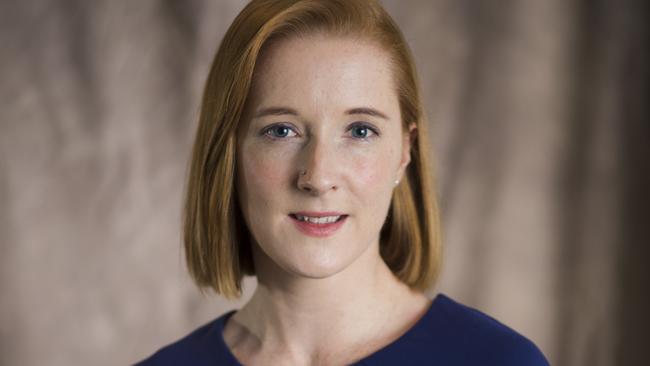
CRAPPY WORK
In 1978, fewer than one in 30 people said they were underemployed, recently that has raised to one in six. Around 35 per cent of Australians under 25 worked casually in 1992, today it’s half.
The net worth of people under 25 — that is savings minus debts — grew by $24,000 between 2004 and 2014; for people over 55 that figure was $286,000.
However, for people between 25 and 35 net worth actually fell by $500 during that decade.
Just last month, Melbourne University’s Household, Income and Labour Dynamics in Australia (HILDA) report found the number of homes occupied by the actual mortgage payer had declined by 3.5 per cent since 2001 and rocketing prices means within the next few years less than half of adults will be homeowners.
“Good jobs, comfortable wealth and the wellbeing that comes with both are increasingly being concentrated in the ... arthritic hands of older Australians,” said Ms Rayner.
“Meanwhile younger Australians are being forced to live with crappier work, less wealth and worse wellbeing.
“It’s like we’re the latecomers to some great national feast where the guests that came before us won’t even share the dregs of their wine.”
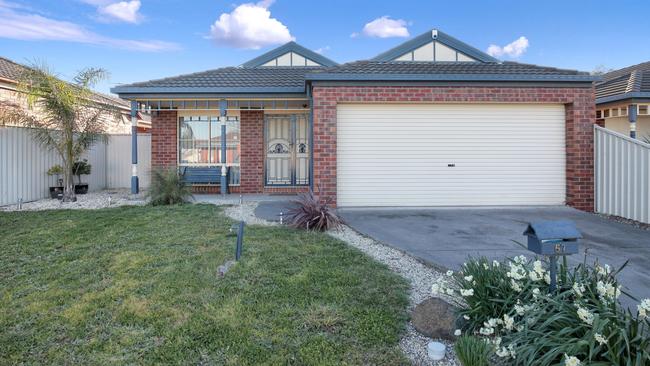
WHAT ABOUT ALL THE IPHONES?
There are other ramifications. Anxiety and depression is higher among younger people.
While the latter people leave it to get on the property ladder the less opportunity they will have to use their house as an asset to borrow money against — to start or invest in a business for instance.
Financial insecurity could also lead to partners putting off becoming parents.
While Ms Rayner did “briefly” own a house, she too is “now back among the 60 per cent of people aged 25 to 34 bedding down in the nest eggs of grey haired investors”.
“If we let these gaps continue to grow, young Australians could end up as an underclass of workers insecure, unprotected, inadequately paid.”
But what of the Baby Boomers bugbear that younger generations, instead of scrimping and saving, are spending big on new smartphones, on-trend togs and craft beer in expensive inner city watering holes?
Mr Rayner is having none of it. Sure, technology might look impressive but proportionally to wages it cost far less than, say, the cost of buying a TV for your grandparents.
She admitted, the “crazily accessibility” of debt was an issue and young people shouldn’t be rolling over thousands of dollars in credit card bills each month.
But by saying we should simply move further and further out of the inner city to find an affordable first home, older people aren’t holding young people to the same standard they had to live by.
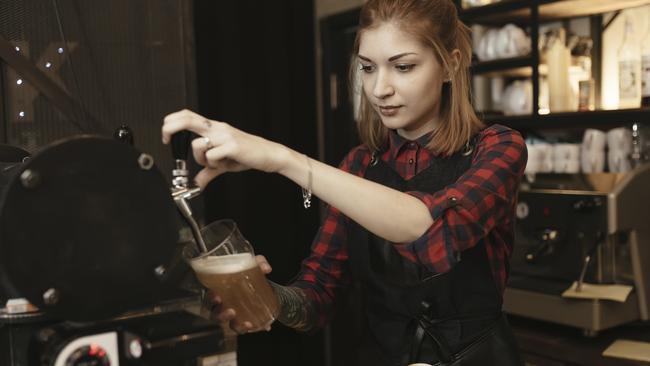
FECKLESS
“It’s a bit rich for older generations saying we should all live in a house two hours away from where we work when they never had to make a sacrifice,” she told news.com.au.
Baby Boomers and Generation X weren’t to blame, they just “grabbed with both hands” the opportunities they were given. All the generations needed to come together and find a solution.
“A truly equal Australia is one where young Australians have the same opportunities to build stable secure lives as our parents and grandparents enjoyed before us,” she said.
“The alternative will see young people become bystanders of this country’s prosperity.”
Ms Rayner, who works for the Labor Party, said consideration should be given to changing employment law so job security was more balanced against the needs of employers. A greater focus should be put on apprenticeships while people needed to get used to the idea of having several careers over their lifetime and continually learning new skills.
However, young people also needed to “show up” and take part in the political process to ensure their needs and voices were heard.
“Our parents disparage us as ‘kidults’ but they’re wrong,” she said.
“Delaying the milestones of traditional adulthood is all but unavoidable when work or housing are insecure and the future is so uncertain.
“Frankly we’re pretty f**cking tired of being told we’re feckless and failing at life when we already pay such a price for the instability of our circumstances.”
benedict.brook@news.com.au


